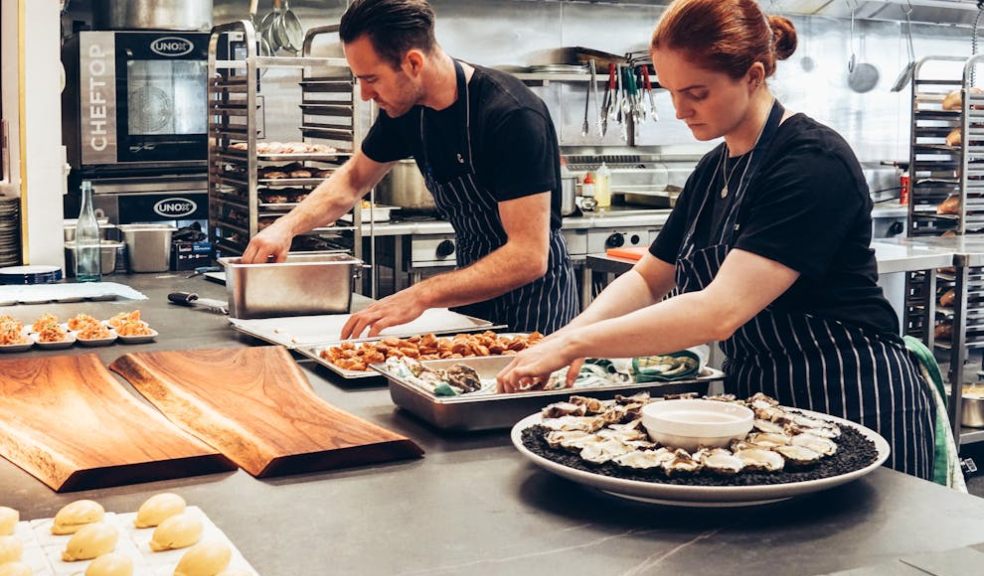
How to Create a Michelin-Star Restaurant in the UK
Achieving a Michelin star is one of the highest honours in the culinary world, symbolising exceptional quality, consistency, and creativity in dining. For UK chefs and restaurateurs, securing this coveted accolade requires an unwavering dedication to the craft, an innovative approach to British and international cuisine, and a commitment to creating unforgettable dining experiences.
Let’s explore what it takes to build a Michelin-star restaurant in the UK, from mastering culinary techniques to delivering exceptional service.
Understanding the Michelin Guide in the UK
The Michelin Guide has been awarding stars to restaurants around the world for more than a century, with the UK edition being a respected benchmark for fine dining since the early 20th century. The guide uses a three-star system to assess restaurants based on five key criteria:
- One Star: High-quality cooking, worth a stop.
- Two Stars: Excellent cooking, worth a detour.
- Three Stars: Exceptional cuisine, worth a special journey.
Anonymous inspectors visit restaurants unannounced, evaluating aspects like ingredient quality, flavour mastery, consistency, value for money, and the chef's individual style.
1. Mastering Culinary Techniques: Precision and Passion
At the heart of a Michelin-star restaurant is exceptional food. Chefs in the UK must demonstrate a mastery of culinary techniques that goes beyond basic cooking skills. This includes:
- Precision in Cooking Methods: Cooking times, temperatures, and presentation must be consistent.
- Understanding British and International Flavours: For UK chefs, integrating British produce with global techniques can create a distinctive signature.
- Creative Presentation: The presentation should be memorable but also complement the flavours.
UK chefs like Gordon Ramsay and Clare Smyth exemplify this precision and creativity, showcasing not only technical skill but also a respect for British ingredients and traditions.
2. Sourcing High-Quality Ingredients: Local and Sustainable
High-quality ingredients are the foundation of any Michelin-worthy dish. Michelin inspectors value sustainable and locally sourced produce, so UK chefs often emphasise:
- British Produce: Using seasonal ingredients like Scottish seafood, Yorkshire rhubarb, or Isle of Wight tomatoes can enhance authenticity.
- Sustainable Sourcing: Ethical sourcing practices, such as working with local farmers and sustainable suppliers, are increasingly important.
- Rare or Unique Ingredients: Sourcing from artisanal producers or foraging local herbs can add a uniquely British touch to your menu.
According to Soil Association Certification, there has been a 12% increase in UK restaurants sourcing organic produce, reflecting the growing consumer interest in sustainability.
3. Creating a Unique Culinary Identity
A Michelin-starred restaurant must offer more than exceptional food—it needs a unique culinary identity. In the UK, this often involves a modern twist on British classics or an innovative fusion of cultural influences. Crafting a distinctive culinary style can involve:
- Signature Dishes: Creating dishes that showcase your chef’s creativity and personality.
- Storytelling through the Menu: Each dish should contribute to an overall theme or narrative, celebrating ingredients or techniques.
- British Roots with a Modern Twist: UK chefs often reimagine classics like beef Wellington or fish pie, infusing them with global flavours or modern techniques.
Restaurants like The Ledbury and The Fat Duck have perfected the art of storytelling through their menus, creating an experience that’s memorable for both local and international guests.
4. Designing an Exceptional Dining Experience
While the food is the star, a Michelin-star restaurant must create an atmosphere that enhances the overall dining experience. This includes the restaurant’s ambience, décor, service, and beverage offerings.
- Ambience and Décor: British-inspired interiors with a modern flair can create an inviting atmosphere. Pay attention to details like lighting, tableware, and comfort.
- Impeccable Service: Staff should be well-trained, attentive, and knowledgeable about the menu. Exceptional service means anticipating guests’ needs without being intrusive.
- Thoughtful Beverage Pairings: A curated wine list or innovative cocktail menu that complements the food can elevate the dining experience.
According to a 2024 Hospitality Institute of the UK study, Michelin-starred restaurants in the UK invest an average of 100 hours per employee annually on training, ensuring high-quality service and knowledge.
5. Consistency: The Key to Michelin Success
Consistency is essential for earning and maintaining a Michelin star. This requires a rigorous commitment to quality control and continuous staff training. Key steps to ensure consistency include:
- Standardised Recipes and Procedures: Creating set standards helps maintain quality and consistency in every dish.
- Regular Staff Development: Continuous training and development keep staff aligned with the restaurant’s standards.
- Quality Control Systems: Implement quality checks throughout the service process to ensure every guest receives the same high level of care.
6. Marketing and Business Acumen
Beyond culinary skills, running a Michelin-star restaurant in the UK requires strong business and marketing strategies. This includes:
- Financial Management: Manage food and labour costs effectively while investing in quality ingredients and equipment.
- Digital Marketing: Social media and PR are essential for attracting attention. Instagram, in particular, is popular for showcasing beautiful dishes.
- Building a Brand: Develop a brand that resonates with your target audience, whether it’s modern British, sustainable fine dining, or fusion cuisine.
7. Embracing Innovation and Continuous Improvement
The culinary world is constantly evolving, and Michelin-starred restaurants must innovate to stay relevant. Embracing innovation can involve:
- Updating the Menu: Refresh your menu to reflect seasonal ingredients and new techniques.
- Experimenting with Techniques: Incorporating sous-vide, fermenting, or molecular gastronomy (when appropriate) can add an exciting element.
- Global and Cultural Awareness: Staying informed about global culinary trends helps keep your offerings fresh and appealing to a wide audience.
8. Sustainability and Ethical Practices
In recent years, the Michelin Guide has begun to recognise restaurants that prioritise sustainability with a “Green Star.” For UK restaurants, sustainable practices can enhance appeal and increase the chance of Michelin recognition. Important practices include:
- Zero-Waste Initiatives: Implement systems to reduce waste and compost or donate leftovers.
- Energy Efficiency: Invest in energy-efficient equipment and manage energy use effectively.
- Support for Local Producers: Partnering with British farmers and artisans contributes to the local economy and strengthens sustainability credentials.
9. Building a Strong, Passionate Team
Creating a Michelin-star restaurant requires a team that shares a passion for culinary excellence. Fostering a positive and inclusive work environment is essential for attracting and retaining talented staff. Building a strong team involves:
- Hiring Skilled and Dedicated Professionals: Select chefs, sommeliers, and front-of-house staff who align with your vision.
- Investing in Staff Development: Offer training and opportunities for growth, fostering a culture of excellence.
- Encouraging Creativity: Allowing team members to contribute ideas and experiment encourages innovation and loyalty.
Achieving Michelin Stardom in the UK: A Journey of Dedication
Building a Michelin-star restaurant is a journey that requires passion, creativity, and a relentless pursuit of excellence. In the UK, with its rich culinary heritage and discerning diners, the path to Michelin recognition may be challenging, but it’s deeply rewarding.
From sourcing the finest British ingredients to crafting unique dining experiences and embracing sustainable practices, focusing on these core elements can set you on the path to Michelin stardom. Achieving a Michelin star is not only a recognition of culinary skill but also a testament to the dedication and creativity that define the world’s best dining experiences.
Are you ready to start on the journey to Michelin success? Start by honing your skills, defining your culinary identity, and committing to an exceptional dining experience. Then, build a solid foundation in culinary studies - this is essential. With determination, passion, and a commitment to quality, your restaurant could join the ranks of the UK’s most celebrated culinary establishments.
How to Create a Michelin-Star Restaurant
The Michelin Star: A Culinary Pinnacle
For many chefs and restaurateurs, earning a Michelin star represents the ultimate achievement in the culinary world. This prestigious accolade signifies exceptional quality, innovation, and consistency in the dining experience. But how does one create a restaurant worthy of this coveted recognition?
The journey to Michelin stardom begins with a solid foundation in culinary studies. A deep understanding of cooking techniques, flavour profiles, and food science is essential for any chef aspiring to create Michelin-caliber dishes. However, the path to earning a star involves much more than just cooking skills.
Understanding the Michelin Guide
Before diving into the specifics of creating a Michelin-star restaurant, it's crucial to understand how the Michelin Guide operates. The guide uses a three-star system to rate restaurants:
- One Star: High-quality cooking, worth a stop
- Two Stars: Excellent cooking, worth a detour
- Three Stars: Exceptional cuisine, worth a special journey
Michelin inspectors visit restaurants anonymously, often multiple times, to ensure consistency. They evaluate based on five criteria: quality of ingredients, mastery of flavour and cooking techniques, the personality of the chef in the cuisine, value for money, and consistency between visits.
Mastering Culinary Techniques
At the heart of any Michelin-starred restaurant is exceptional food. This requires a mastery of culinary techniques that goes beyond basic cooking skills. Chefs must demonstrate:
- Precision in cooking methods
- Understanding of flavour combinations
- Creativity in presentation
- Consistency in execution
Innovative techniques like molecular gastronomy or modernist cuisine can set a restaurant apart, but they must be executed flawlessly and with purpose. It's not about using techniques for their own sake, but about enhancing the dining experience and showcasing ingredients in new and exciting ways.
Sourcing High-Quality Ingredients
The foundation of any great dish is high-quality ingredients. Michelin-starred restaurants often prioritise:
- Local and seasonal produce
- Sustainable sourcing practices
- Rare or unique ingredients that add interest to the menu
According to a 2023 report by the James Beard Foundation, 87% of Michelin-starred restaurants in the United States prioritise sustainable sourcing practices. This not only ensures the best quality ingredients but also aligns with growing consumer interest in ethical and environmentally friendly dining options.
Creating a Unique Culinary Identity
A Michelin-starred restaurant isn't just about good food; it's about creating a unique culinary identity. This involves:
- Developing a signature style or cuisine
- Creating innovative dishes that showcase the chef's creativity
- Telling a story through the menu and dining experience
The chef's personality should shine through in every aspect of the restaurant, from the menu design to the plating of each dish. This unique identity helps set the restaurant apart and creates a memorable dining experience.
Designing an Exceptional Dining Experience
While food is the star of the show, the overall dining experience plays a crucial role in earning a Michelin star. This includes:
- Ambiance and Decor
-
- Creating a comfortable yet sophisticated atmosphere
- Attention to detail in every aspect of the dining room
- Lighting, music, and table settings that enhance the meal
- Impeccable Service
-
- Well-trained staff who are knowledgeable about the menu and wine list
- Attentive but unobtrusive service
- Ability to anticipate and meet guest needs
- Wine and Beverage Program
-
- A carefully curated wine list that complements the menu
- Innovative cocktail offerings
- Non-alcoholic options that are just as thoughtful as their alcoholic counterparts
According to a 2024 study by Cornell University's School of Hotel Administration, 92% of Michelin-starred restaurants invest heavily in staff training, with an average of 120 hours of training per employee per year. This investment in service quality is a key factor in creating an exceptional dining experience.
Consistency: The Key to Michelin Success
Consistency is perhaps the most critical factor in earning and maintaining a Michelin star. This means delivering the same high-quality experience every single day, for every single guest. Achieving this level of consistency requires:
- Rigorous quality control measures
- Standardised recipes and procedures
- Regular staff training and development
- A culture of excellence that permeates every aspect of the restaurant
Business Acumen and Marketing
While culinary excellence is at the core of a Michelin-starred restaurant, business savvy is equally important. This includes:
- Financial Management
-
- Understanding food costs and pricing strategies
- Managing labour costs effectively
- Investing in quality equipment and ingredients while maintaining profitability
- Marketing and Branding
-
- Developing a strong brand identity
- Utilising social media and digital marketing effectively
- Building relationships with food critics and influencers
- Location and Market Research
-
- Choosing the right location for your restaurant
- Understanding your target market and competition
- Adapting to changing consumer preferences and trends
Innovation and Continuous Improvement
The culinary world is constantly evolving, and Michelin-starred restaurants must stay at the forefront of innovation. This means:
- Regularly updating and refining the menu
- Experimenting with new techniques and flavour combinations
- Staying informed about global culinary trends
- Investing in ongoing education and development for the chef and staff
Sustainability and Ethical Practices
In recent years, sustainability and ethical practices have become increasingly important in the fine dining world. Michelin-starred restaurants are expected to:
- Implement sustainable sourcing practices
- Reduce food waste and energy consumption
- Support local farmers and producers
- Consider the environmental impact of their operations
Building a Strong Team
No chef can create a Michelin-starred restaurant alone. Building a strong, dedicated team is crucial. This involves:
- Hiring passionate and skilled individuals
- Fostering a positive work environment
- Providing opportunities for growth and development
- Encouraging creativity and input from all team members
The Path to Michelin Stardom
Creating a Michelin-star restaurant is a challenging but rewarding journey. It requires a combination of culinary excellence, business acumen, and a relentless commitment to quality and innovation. While there's no guaranteed formula for success, focusing on these key areas will put you on the path to culinary greatness.
Remember, earning a Michelin star is not the end goal, but rather a recognition of the hard work, creativity, and passion that goes into creating an exceptional dining experience. Whether you're just starting your culinary journey or you're a seasoned chef looking to take your restaurant to the next level, the pursuit of excellence in every aspect of your operation will serve you well.
By focusing on exceptional ingredients, innovative techniques, impeccable service, and a unique culinary identity, you can create a restaurant that not only impresses diners but also catches the eye of those elusive Michelin inspectors. The journey may be long and challenging, but for those with a true passion for culinary excellence, it's a journey worth taking.
Are you ready to embark on your Michelin star journey? Start by honing your skills, developing your unique culinary voice, and creating unforgettable dining experiences. With dedication, passion, and a commitment to excellence, your restaurant could be the next to join the ranks of the world's culinary elite.

















